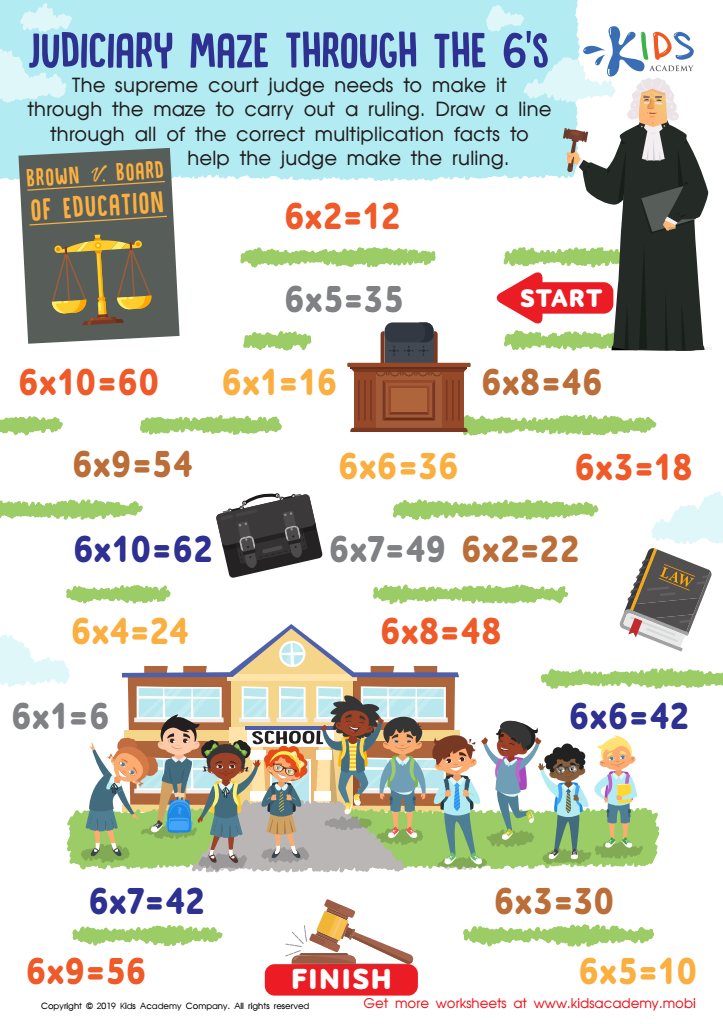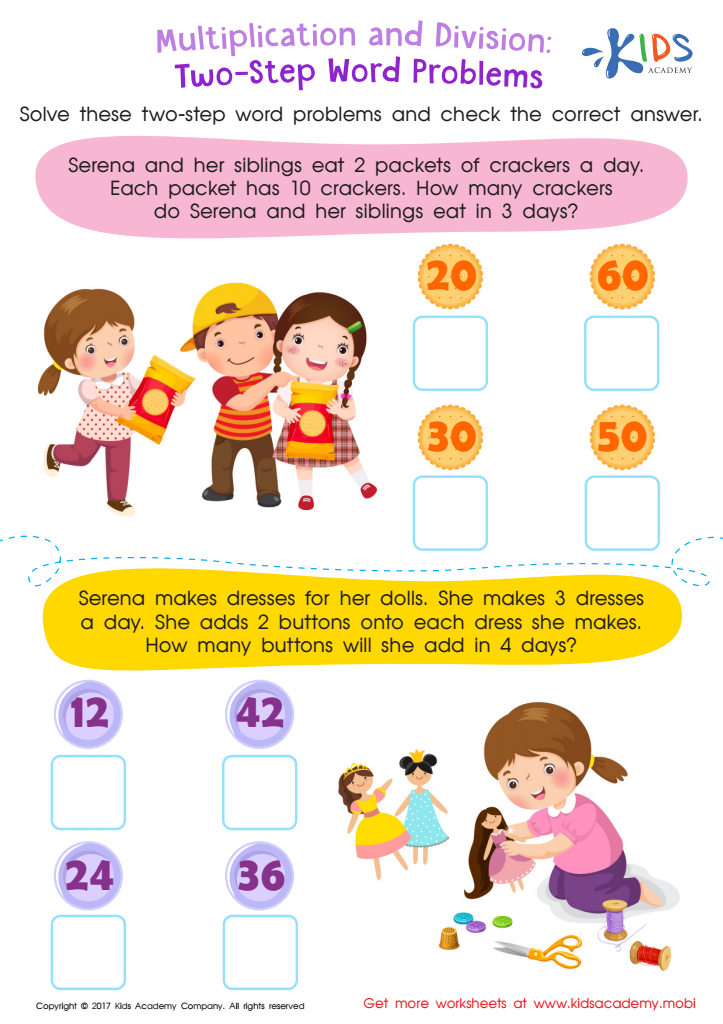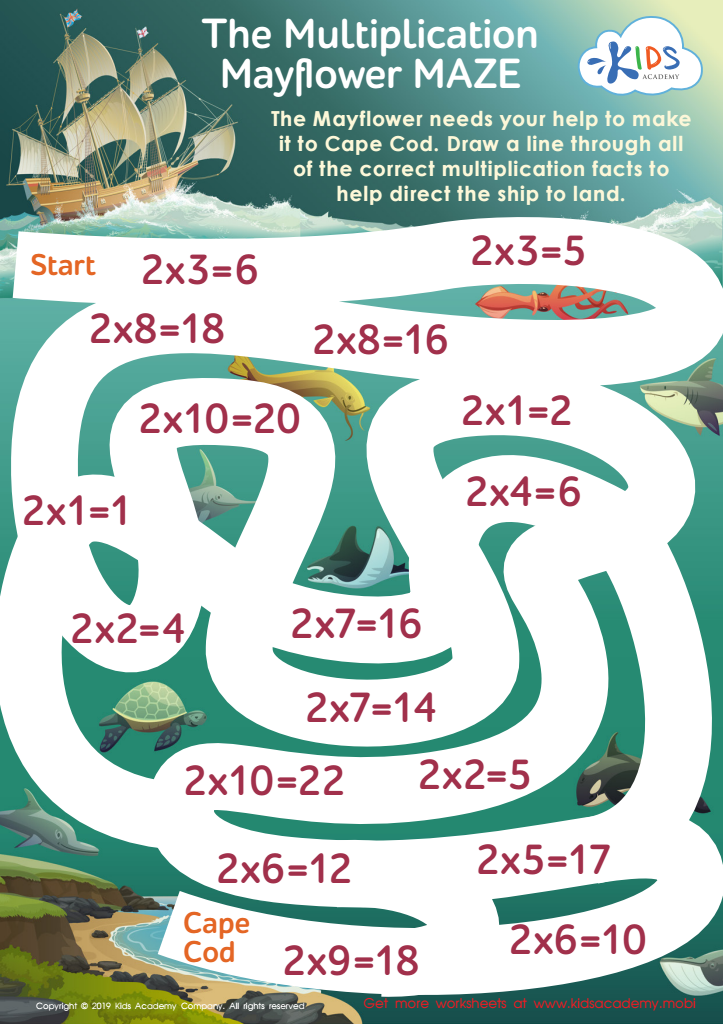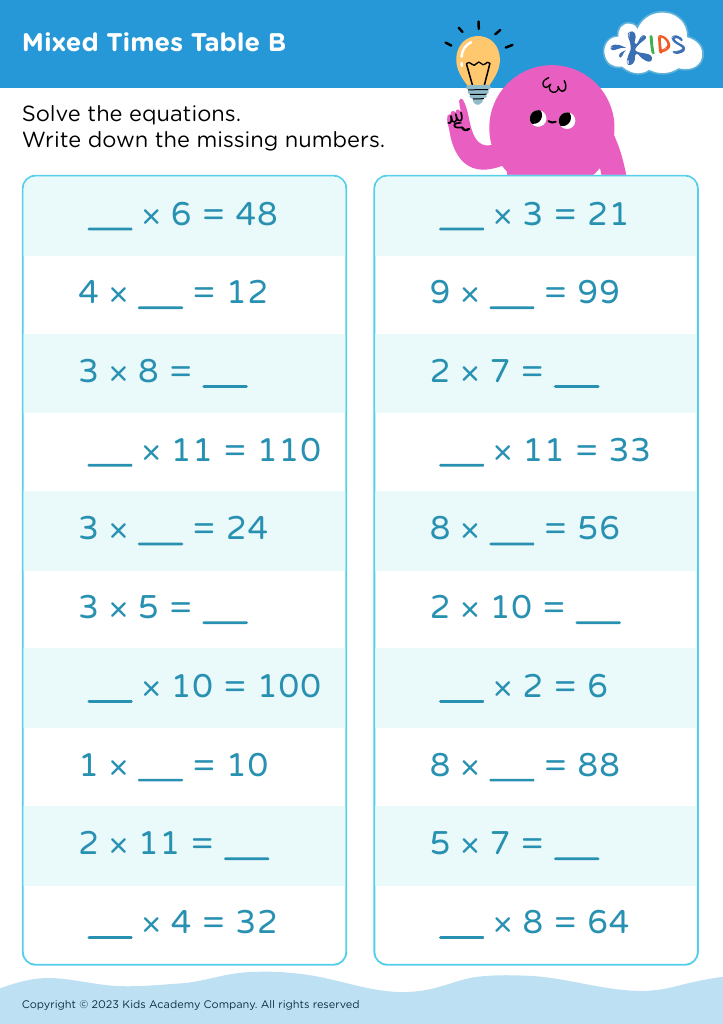Problem-Solving Skills Extra Challenge Multiplication Worksheets for Ages 3-9
4 filtered results
-
From - To
Unlock your child's potential with our "Problem-Solving Skills Extra Challenge Multiplication Worksheets" for ages 3-9. Specifically designed to enhance math proficiency, these worksheets provide engaging, age-appropriate activities that develop crucial problem-solving skills. Children will tackle complex multiplication problems within an interactive, fun framework that stimulates critical thinking and mathematical reasoning. Perfect for at-home practice or classroom enrichment, each sheet aims to boost confidence in young learners, laying a strong foundation for future math success. Give your child the extra challenge they need to excel with these expertly crafted, printable resources from Kids Academy!


Judiciary Maze Through The 6’s Worksheet


Two Step Word Problems Worksheet


The Multiplication Mayflower Maze Worksheet
Investing in the development of problem-solving skills and an early understanding of multiplication for children aged 3-9 is incredibly beneficial. Firstly, these skills lay the foundation for critical thinking and logical reasoning. As children engage with basic multiplication and problem-solving exercises, they learn to approach challenges methodically, enhancing their cognitive development.
Furthermore, early exposure to multiplication prepares children for more advanced math concepts. By mastering these basics, they gain confidence and a sense of achievement, which fosters a positive attitude toward learning and schoolwork. Multiplication is a building block for many future math skills, and early proficiency can help to mitigate math anxiety.
Additionally, problem-solving activities encourage children to be persistent and resilient. These experiences teach them that challenges can be overcome with effort and perseverance, which are crucial life skills.
The social aspect shouldn’t be overlooked either. Group problem-solving tasks can promote cooperation, communication, and teamwork. These collaborative skills are essential for both academic success and daily life.
Finally, these exercises offer an opportunity for parents and teachers to engage with children in a fun, educational manner. Such interactions can strengthen bonds and support a child’s overall emotional and social well-being. Thus, focusing on these skills is a comprehensive approach to fostering well-rounded, capable, and confident learners.

 Assign to My Students
Assign to My Students

















